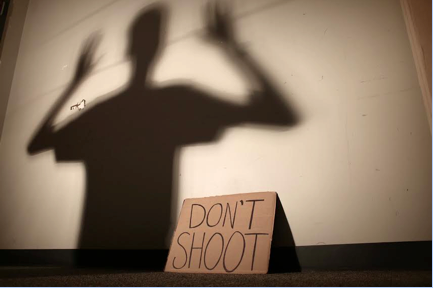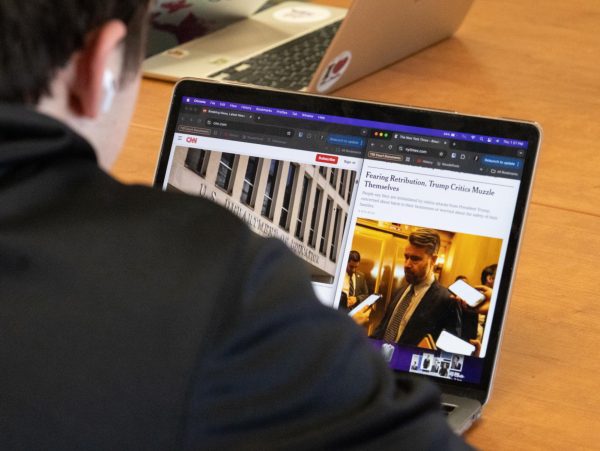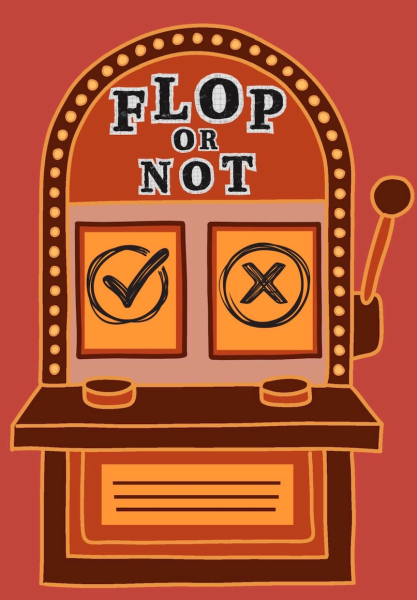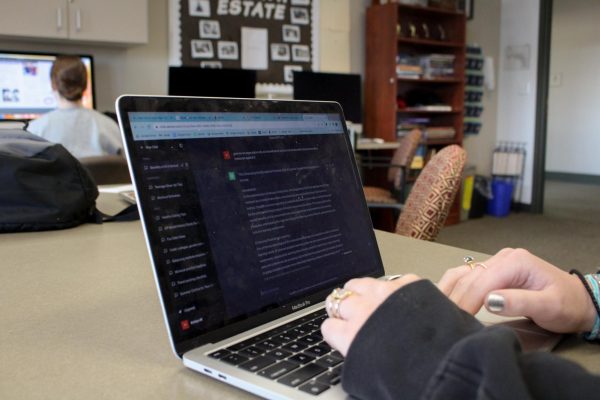Don’t shoot

Photo: Juliana Wall
Student uses the “Don’t Shoot” stance used by protesters in Ferguson. People from across the nation travelled to Ferguson to take part in the protests that lasted 16 days this past August.
Mike Brown was a young black male who was ruthlessly shot dead in Ferguson, Missouri. Citizens are actively protesting- outraged at the police’s reaction toward the case and do not appear to be backing down any time soon.
Early on Aug. 9, 2014, Brown was supposedly involved in a petty robbery at a gas station. He was walking home with a friend when a white cop came and seemingly harassed the two until an altercation started. Brown was killed during the fight after being shot around six times.
This dilemma serves as a precedent for the American people; impacting their points of view, their opinions, and how they live their daily life. In order to end these problems, Americans need to speak up for what they know is right regardless of their race or their social status.
If people worked to stop looking at a young black male and immediately jump to the conclusion that he is a threat to society, we could avoid many complications. We as a community need to do better by treating each other better in order to avoid these problems.
This problem is not just limited to Ferguson. People here in our city and at St. George’s have felt the affects of racial profiling and have strong views on what should be done.
“[The officer] shouldn’t shoot anyone defenseless. Period,” stated Marshall Shanks, an African-American student, when asked how he felt about Brown’s case.
Regardless of the fact that this problem impacts the black community directly, there are others outside of this community who are against racism and the problems it causes.
“I definitely think it was completely unjust. The officer should be punished if Mike Brown did not do anything wrong,” stated James Harris, a white student here at St. Georges.
These kinds of cases have caused young black men to be more careful when going out in public, and have even caused second thoughts on something as simple as wearing a hoodie at night. They are judged for playing their music loudly, for their choice in wardrobe, and the tattoos they adorn their bodies with. Members of the black community are concerned that their sons could become the next Martin or Brown.
Ferguson is a community 65-70 percent black and has a police force where only three out of the 56 policemen are black.
“It creates a problem, especially if we have an underlying issue of communication,” says Mr. Luther Mercer, the school’s head of the Institute of Citizenship.
Mr. Mercer has been a victim of racial profiling in his hometown of Jackson.
“Oh yeah. I’ve been stopped for driving in a certain area,” states Mr. Mercer. At the age of 16 while driving his mother’s Jaguar through a nicer area of town, he was pulled over and questioned about whether or not it was his.
“I think it’s a microcosm of issues that continue to exist. How black males are viewed, particularly the fear that has established how young black men are seen as a threat,” Mr. Mercer concluded.






